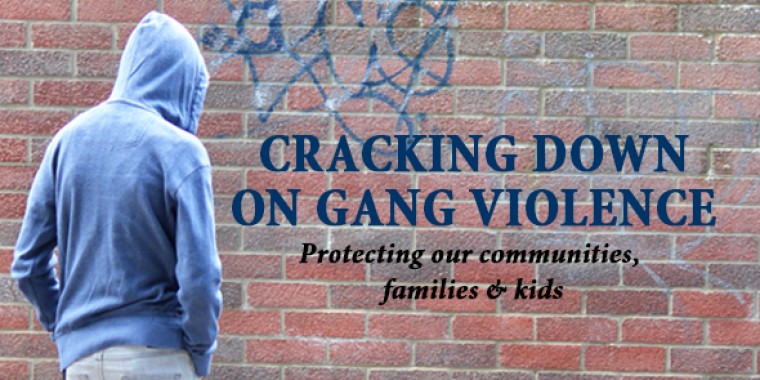
Senator Lanza Announces Top Ten Consumer Frauds Of 2012
Andrew J Lanza
April 11, 2013
Internet And Credit Issues Were Top Frauds Reported To NY A.G.’s Office
Senator Lanza Provides Tips To New Yorkers
Senator Andrew Lanza today pointed to the list of the top ten consumer fraud complaints received by the Attorney General’s Office in 2012 and offered tips on how to avoid them in the future.
In 2012, internet-related complaints topped the list of the most common complaints (4,096), closely followed by credit-related complaints that involved debt collection, credit card billing and identity theft. Of the nearly 3,200 credit-related complaints, more than half of them (1,760 complaints) were filed against debt collectors who illegally threatened and harassed consumers.
In addition, the Attorney General's Office continues to receive a large number of mortgage-related complaints (over 1,500 complaints) which demonstrates the extent to which consumers who are struggling to stay on top of their mortgages are being targeted by fraudulent and unscrupulous loan modification consultants. In June of 2012, the Attorney General's Office announced the Homeowner Protection Program (HOPP), a $60 million program to fund legal service providers and housing counseling organizations serving at-risk homeowners across New York. Homeowners who need assistance can call 1-855-HOME-456 to be connected with a counselor within 24 hours.
The following is the 2012 list of the top ten consumer complaints by category:
CATEGORY NUMBER OF COMPLAINTS
1. Internet 4,096
(privacy issues; spyware;consumer frauds)
2. Credit 3,167
(debt collection; credit card billing; debt settlement)
3. Automobile 2,950
(buying; leasing; repair; service contracts; rentals)
4. Consumer-Related Services 2,070
(security systems; restaurant/catering services; tech repairs; dating services)
5. Landlord / Tenant 1,808
(deposit releases; tenant-harassment)
6. Mortgage 1,511
(mortgage modifications; mortgage and loan broker fraud; foreclosures)
7. Home Repair / Construction 1,125
(home improvement services not delivered or done poorly)
8. Retail Sales 974
(any sale of goods: food; clothing; rent to own; wholesale clubs)
9. Mail Order 868
(purchases made online or from a catalog)
10. Telecommunications 805
(phone cards; cellular services; pay-per-call; slamming; cramming)
Senator Lanza also provided a list of tips all consumers should use to protect themselves and their families:
1. Internet: Always make sure websites are secure before providing any financial information, such as a credit card or bank account number. Secure website addresses start with “https” and have a symbol, such as a lock. These secure sites use encryption to scramble your information as it is transmitted over the Internet to keep it secure.
2. Credit: Debt collection is the most common type of credit fraud, and consumers must know their rights. Debt collectors may not harass or abuse consumers, nor provide misleading information – for instance claiming to represent a government agency. Anyone with credit problems should contact non-profit credit counseling agencies licensed by the New York State Department of Financial Services for assistance in managing the situation and avoiding collection scams.
3. Automobile: Many automobile complaints relate to leasing and New Yorkers should know that they are protected by the strongest auto-leasing law in the country. The law allows consumers to shop around for the best deal when leasing a car, set limits on early termination, and even gives the Attorney General’s Office jurisdiction to resolve excess wear-and-tear disputes.
4. Consumer-Related Services: We rely on a range of services in our day-to-day living, from snow-removal to home repair to party planning. Make sure to use a written contract for all services that clearly defines restrictions and obligations of both the consumer and service-provider.
5. Landlord/Tenant: Landlords are required to keeping records of all notices, inspections and repair matters related to the residence. This is especially important for issues like lead paint – which was prevalent in the 1960s and poses a significant threat to children. Ask your landlord for documentation to ensure that your building is up to code.
6. Mortgage: Mortgage rescue scams prey on homeowners in their greatest time of need. Look out for offers that will stop or delay foreclosure payments for an upfront fee or make payments on your behalf. Beware of companies that suggest a government affiliation or claim to be with the government, or those that work with attorneys but do not provide the services promised. Call the Attorney General's toll free Homeowner Protection Program (HOPP) hotline at 1-855-HOME-456 to find a free non-profit housing counselor or legal services organization that can help you. Learn more here.
7. Home Repair/Construction: The biggest and most important investment families will make is their homes, and improvements should add value, not hardship. Before entering into a contract, shop around for estimates, check in with the Better Business Bureau, banks, suppliers and neighbors for references, and know your rights: you have three days after signing a home improvement contract to cancel it. Home improvement contractors must be licensed in New York City, Suffolk, Nassau, Westchester, Putnam, and Rockland Counties.
8. Retail Sales: Retail gift cards have become increasingly popular. However, consumers should be careful to buy only from retailers they know and trust. If you buy a card from a company that files for bankruptcy or goes out of business, the card may be worth less than you what they paid. Consumers should also read the rules on the card to know what fees and conditions apply. New rules now provide that money on a gift card cannot expire for at least five years from the date the card was purchased, or from the last date any additional money was added to the card. Inactivity fees can also only be charged if the card has not been used for at least one year.
9. Mail Order: Whether ordering online or from a catalog, make sure the company has an operating customer service line and lists a real street address. Companies operating on a ‘fly-by-night’ basis often have no working customer service number and list only a P.O. Box.
10. Telecommunications: Consumers should check their landline and wireless phone bills for unauthorized third party charges for non-call related services like email, website hosting, discount buying programs or voicemail services. “Cramming” as this practice is called can occur when companies trick consumers into allowing such charges through sweepstake entries, surveys, websites, and contests. Some businesses use misleading and deceptive ads promising "free" services or products to get your name and telephone number and then charge you for a service you don't need or want. If you see unauthorized charges on your bill, tell your telephone company that you dispute the charges and ask that they be removed.
Senator Lanza reminded New Yorkers that in addition to being vigilant consumers, they should also report instances of fraud to the Attorney General's office.Consumers are encouraged to file complaints by visiting the Office’s website or calling 1-800-771-7755.
Share this Article or Press Release
Newsroom
Go to NewsroomMichael J. Christiano
May 15, 2017

Donna B. Gerstle
May 9, 2017

